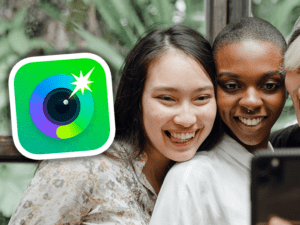The lockdown inevitably resulted in children and young people spending more time playing online games. Research conducted during the lockdown has found that over half of 13- to 18-year-olds prefer to keep in touch with friends via gaming than social media.
In the past several years, the line between online gaming and online gambling has become even more blurred. There are also legitimate concerns that being introduced to gambling via gaming at a young age, may facilitate the development of problem behaviours in later life. With young people spending more time online it’s more important than ever to look at the facts.
The Gambling Commission’s annual research illustrates a downward trend in online gambling among young people as a whole. However, young people remain the most vulnerable to gambling addiction. The percentage of problem gamblers for 11- to 16-year-olds has risen from 1.7% to 1.9%.
Key Points
Gambling is not often associated with children and young people, but alongside increased screen time, competitive gaming and in app purchases, it can have serious effects on mental health, family relationships and financial security.
Gambling with games
Most games offer in-app purchases that include 'loot boxes' which are prizes that often look like treasure chests.
'Loot boxes' are bought with real currency and are regarded as gambling because players cannot always see what's in the boxes before they click buy – this introduces the element of chance which is central in gambling practice.
This means that users are unable to decide if their goods are worth the price being asked for and can encourage multiple purchases to 'win' the desired loot or to 'recover loses'. Popular games containing Loot Boxes are: FIFA, League of Legends, Call of Duty Modern Warfare and Fortnite Battle Royale.
Following widespread criticism towards the gaming industry, it was announced in April 2020 that PEGI (Pan European Gaming Information) ratings on in-game purchases would apply to 'loot boxes'.
In 2019, MPs called for in-game spending to be regulated by gambling laws, and from October to November 2020, the UK Government issued a call for evidence on the impact of Loot Boxes on young people. This research is yet to be published but will likely inform next steps and potentially result in including Loot Boxes under the Gambling Act 2005.
What does the law say?
The Gambling Act 2005 defines gambling as gaming, betting or participating in lotteries. Young people have to be at least 16 to take part in national lottery activities (including scratch cards) or football pools, but they must be 18 to enter betting shops, bingo halls, casinos and online gambling sites.
The Law and Young People
The law aims to protect young people from harm or exploitation from gambling activities and targeted advertising, by restricting targeted ads for under 18s. The Government is currently reviewing the 2005 Act and has described it as an 'analogue law in a digital age'.
Following a Gambling Commission review into age verification procedures, new age verification laws were introduced in early 2020. The new rules require gambling operators to verify a customer's age before they can deposit funds, redeem a free bet or play free betting simulations.

The rise of ‘skin betting’
Games with in-app purchases can also feature add on virtual products called 'skins', which include in-game accessories, weapons, clothing or styles for avatars and characters within a game. These 'skins' are collected through opening loot boxes or paying money to unlock them.
These skins don't affect how games are played, but they allow users to change the appearance and feel of the game. In some cases, skins can be traded with other players and used as a form of currency to bet on game outcomes.
Research conducted by Parent Zone in 2018 found that 30% of 13-18-year-olds in the UK were aware of skin betting and 10% (nearly 450,000 young people) had taken part in skin gambling in some form.
The Gambling Commission has found that some websites have allowed the use of skins for illegal gambling, warning parents to be vigilant prompting them to report these activities to them.
"We are very concerned…[we] would like parents and guardians to be vigilant – you could be giving money to [a] child thinking that they are buying computer games or in-game items when in fact they are using funds to gamble." (The Gambling Commission, 2019)
Join our Safeguarding Hub Newsletter Network
Members of our network receive weekly updates on the trends, risks and threats to children and young people online.










